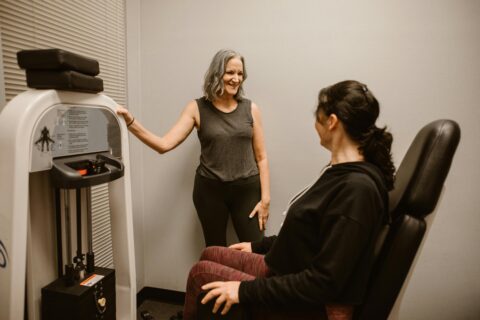Hormone shots are used to treat a variety of conditions by altering hormone levels in the body. Learn about the different types of hormone injections and their effects.
What Does a Hormone Shot Do? An In-Depth Look at Hormone Therapy
Hormone shots, also called hormone injections, are a type of medical treatment used to increase, decrease, or replace certain hormones in the body. Hormones are chemical messengers that control and coordinate many important functions, including growth, metabolism, sexual function, reproduction, and mood.
Hormone shots work by delivering synthetic hormones directly into the bloodstream, usually through an injection into the muscle or under the skin. The specific effects depend on the type of hormone being administered. Common hormones used in these treatments include:
| Hormone | Function |
| Testosterone | Primary male sex hormone |
| Estrogen | Primary female sex hormone |
| Progesterone | Female sex hormone important for menstruation and pregnancy |
| Human Growth Hormone (HGH) | Controls growth in children and affects metabolism in adults |
| Thyroid Hormones | Regulate metabolism, energy levels, and other functions |
What Are Hormone Shots Used to Treat?
Doctors may recommend hormone shots to treat a wide range of medical conditions caused by hormonal imbalances or deficiencies. Some of the most common uses include:
Low Testosterone (Male Hypogonadism)
In men, testosterone shots can help treat symptoms of low T, such as:
- Low sex drive
- Erectile dysfunction
- Loss of muscle mass
- Fatigue
- Mood changes
Menopause Symptoms
During menopause, women’s estrogen levels drop significantly. Estrogen replacement therapy in the form of shots can help relieve severe symptoms like:
- Hot flashes and night sweats
- Vaginal dryness and discomfort
- Bone loss (osteoporosis)
- Sleep problems and mood swings
Prostate Cancer
In some cases of prostate cancer, testosterone can fuel tumor growth. Hormone shots for prostate cancer work by dramatically lowering testosterone levels or blocking testosterone’s effects. This is called androgen deprivation therapy (ADT).
While ADT cannot cure prostate cancer, it can shrink or slow the growth of tumors and prevent the spread of cancer to other parts of the body. ADT is often used in combination with other treatments like radiation therapy or surgery.
Breast Cancer
Some types of breast cancer are sensitive to estrogen, meaning the hormone contributes to tumor growth. In these hormone-receptor-positive breast cancers, hormone therapy medications are used to block estrogen production or interfere with estrogen’s effects on cancer cells.
The anti-estrogen drug tamoxifen is sometimes given as an intramuscular shot to treat advanced breast cancer that has spread to other tissues. Tamoxifen can help prevent the growth and spread of breast tumors in both women and men.
Gender Transition
Transgender individuals may receive hormone shots to acquire the secondary sex characteristics that align with their gender identity. For transgender women, estrogen shots promote breast growth, fat redistribution, and other feminine traits.
Transgender men receive testosterone shots to develop masculine features like facial hair, a deeper voice, and increased muscle mass.
Growth Hormone Deficiency
In children, growth hormone deficiency can lead to short stature and delayed puberty. Growth hormone shots are used to restore normal growth and development. Adults with low growth hormone can also benefit from hormone injections, which can increase bone density, muscle mass, and exercise capacity.
How Are Hormone Shots Administered?
Hormone shots are typically administered by a doctor or nurse in a medical setting, such as a clinic or hospital. However, many people learn to give themselves hormone injections at home. Proper injection technique is important to reduce the risk of complications.
The injection site depends on the type of hormone being used. Common injection sites include:
- Buttocks (gluteal muscles)
- Thigh (vastus lateralis muscle)
- Upper arm (deltoid muscle)
- Abdomen (subcutaneous fat)
Intramuscular injections deliver medication deep into the muscle tissue for slow, sustained absorption into the bloodstream. Subcutaneous injections are given in the fatty layer just beneath the skin and allow the medication to be absorbed more quickly.
What Are the Side Effects of Hormone Shots?
As with any medical treatment, hormone injections can cause side effects. The specific side effects depend on the type of hormone being used and the individual’s response to treatment.
Potential side effects of testosterone shots include:
Acne: Testosterone can stimulate oil glands in the skin, leading to increased oil production and potentially causing acne breakouts.
Sleep Apnea: Some studies suggest a link between testosterone replacement therapy and sleep apnea, although the exact mechanism is not fully understood.
Enlarged Prostate: Testosterone can stimulate the growth of prostate tissue, which may exacerbate symptoms of benign prostatic hyperplasia (BPH) or lead to an enlarged prostate.
High Red Blood Cell Counts: Testosterone can stimulate the production of red blood cells in the bone marrow, leading to an increase in red blood cell counts. This can potentially increase the risk of blood clots or stroke.
Testicle Shrinkage: Exogenous testosterone can suppress the body’s natural production of testosterone, leading to testicular atrophy or shrinkage. This is because the testes may decrease in size due to lack of stimulation from the body’s own production of hormones.
Infertility: Testosterone replacement therapy can suppress sperm production in the testes, leading to decreased fertility or infertility in some individuals. This effect is often reversible upon discontinuation of therapy, but it’s essential to discuss fertility concerns with a healthcare provider before starting treatment.
Estrogen shots may cause side effects like:
- Blood clots
- Stroke
- Gallbladder disease
- High blood pressure
- Headaches
- Nausea
Growth hormone shots can sometimes lead to:
- Joint and muscle pain
- Carpal tunnel syndrome
- Insulin resistance
- Edema (swelling)
- Enlarged breasts in men
Many side effects of hormone therapy are mild and go away on their own. However, some can be serious or even life-threatening. It’s important to discuss the potential risks and benefits of hormone shots with your doctor.
How Long Do You Need to Take Hormone Shots?
The length of hormone therapy depends on the condition being treated and how well it responds to medication. For example:
Testosterone replacement therapy is usually long-term, with ongoing shots every one to two weeks to maintain optimal hormone levels.
Prostate and breast cancer patients may receive hormone shots for many months or years, depending on the stage of their cancer and other treatments they receive.
Transgender patients generally continue hormone therapy indefinitely to maintain the physical characteristics of their affirmed gender.
Your doctor will monitor your hormone levels and adjust your dosage as needed to achieve the desired results while minimizing side effects. Never change your hormone shot regimen without consulting your doctor.
Are There Alternatives to Hormone Shots?
While shots are an effective way to deliver hormones, they aren’t the only option. Other methods of hormone replacement include:
- Skin patches
- Gels and creams applied to the skin
- Implants inserted under the skin
- Oral medications (pills)
Your doctor can help determine the best method of hormone delivery for your individual needs and preferences. Some people find shots convenient because they don’t need to remember to take a daily pill or apply a patch. Others dislike needles and prefer a different option.
The Bottom Line
Hormone shots are a powerful tool for treating a variety of health conditions in both men and women. By optimizing hormone levels in the body, these treatments can relieve symptoms, slow disease progression, and improve quality of life. However, they also carry risks.
If you think you could benefit from hormone therapy, talk to your doctor. They can order tests to check your hormone levels and help you weigh the potential benefits and downsides of treatment. With the right approach, hormone shots could be key to helping you feel your best.










